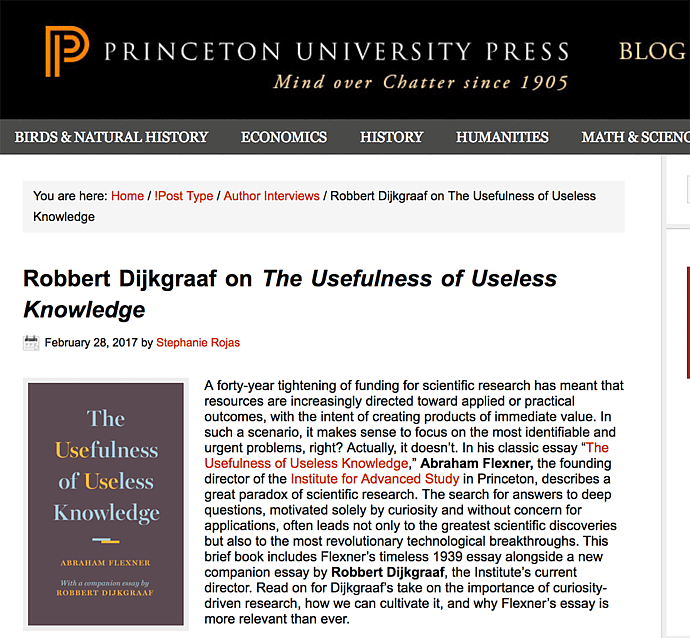
Robbert Dijkgraaf on The Usefulness of Useless Knowledge
A forty-year tightening of funding for scientific research has meant that resources are increasingly directed toward applied or practical outcomes, with the intent of creating products of immediate value. In such a scenario, it makes sense to focus on the most identifiable and urgent problems, right? Actually, it doesn’t. In his classic essay “The Usefulness of Useless Knowledge,” Abraham Flexner, founding Director of the Institute, describes a great paradox of scientific research. The search for answers to deep questions, motivated solely by curiosity and without concern for applications, often leads not only to the greatest scientific discoveries but also to the most revolutionary technological breakthroughs. The Usefulness of Useless Knowledge (Princeton University Press, 2017) includes Flexner’s timeless 1939 essay alongside a new companion essay by Robbert Dijkgraaf, the Institute’s current Director.
In an interview with Princeton University Press's Stephanie Rojas, Robbert Dijkgraaf speaks of the importance of curiosity-driven research, how we can cultivate it, and why Flexner’s essay is more relevant than ever. Read more on the blog.


